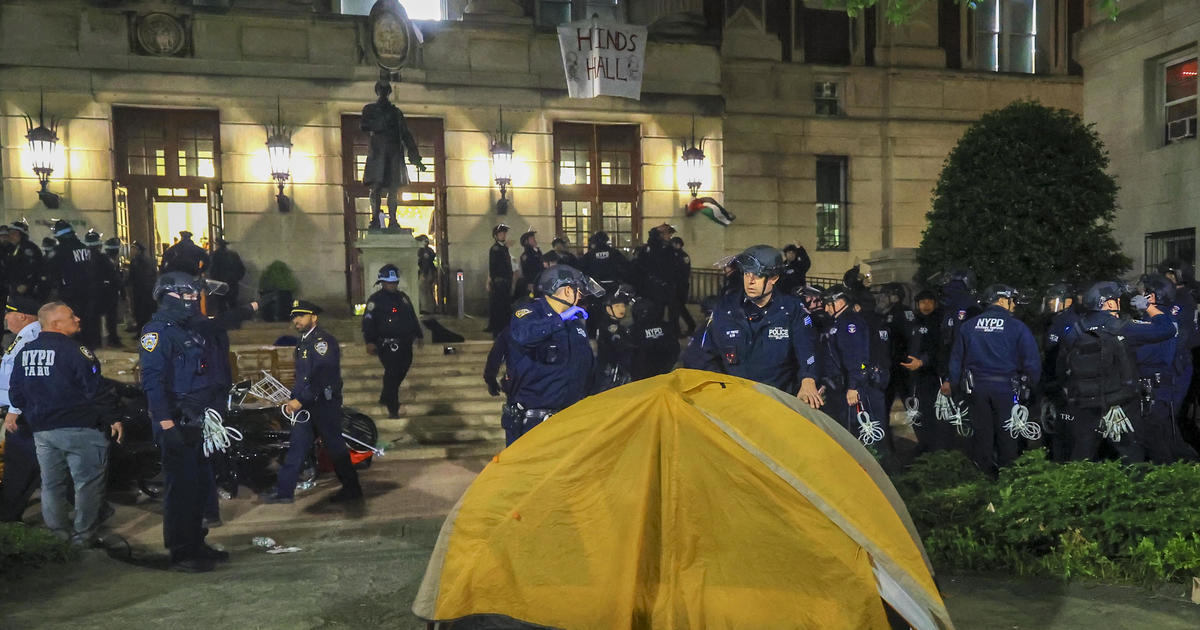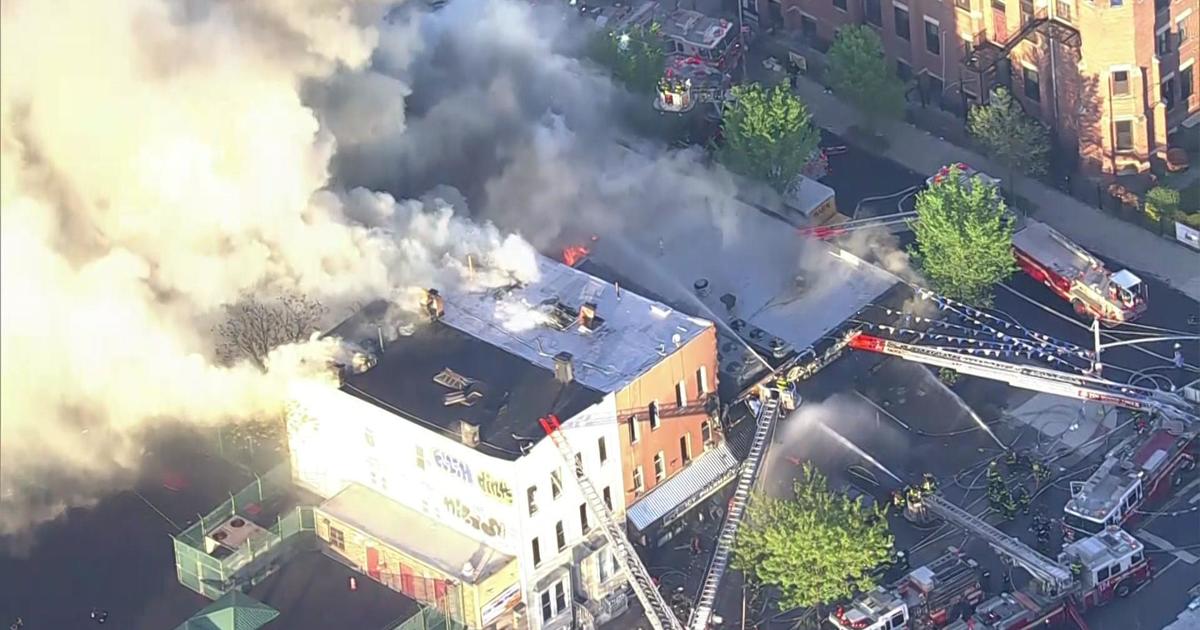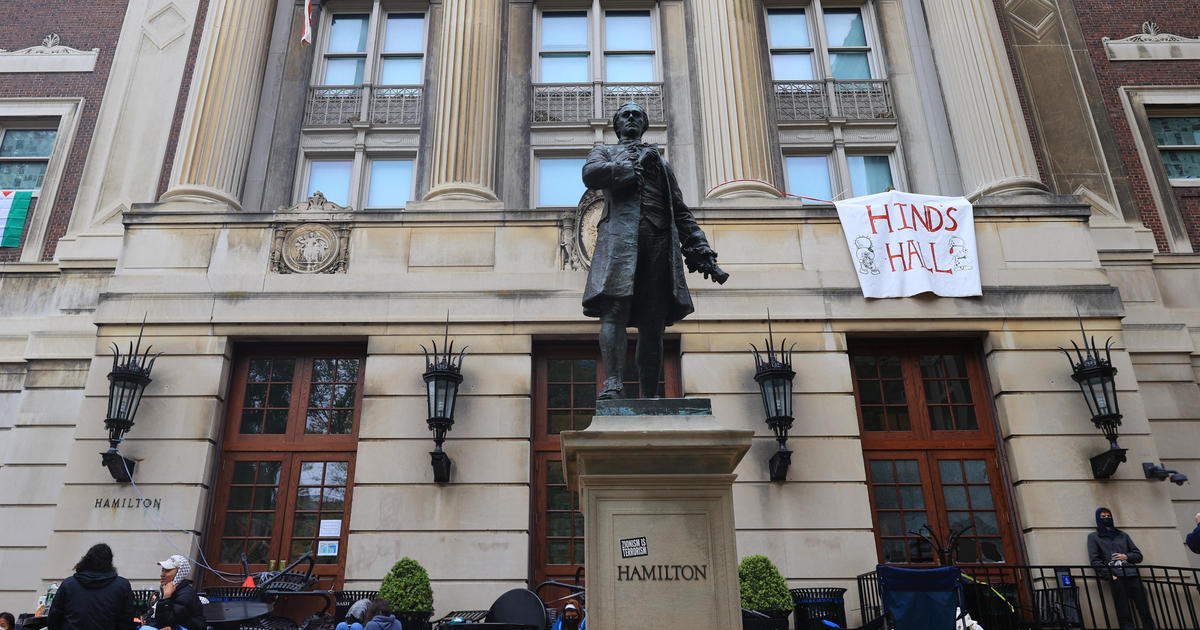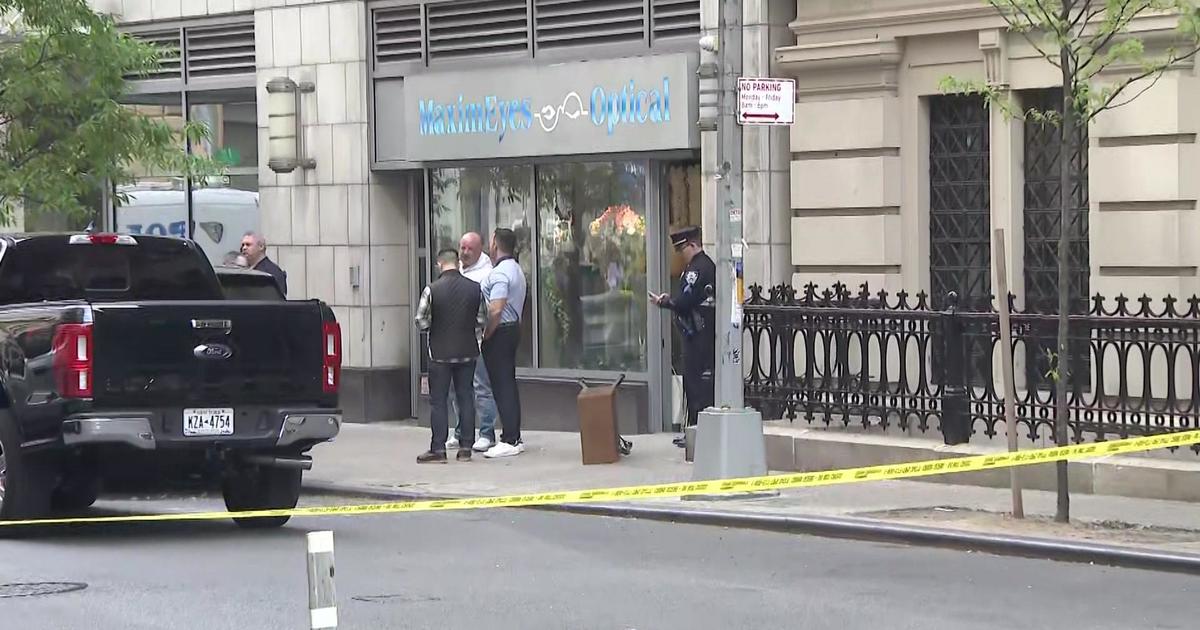Lawmakers Want Cops To Live In 5 Boroughs After Facebook West Indian Day Controversy
NEW YORK (CBSNewYork/AP) -- Several elected officials from Brooklyn are calling for a law requiring NYPD officers to live within the five boroughs of New York City.
The elected leaders including Assemblyman Hakeem Jeffries and Rep. Yvette Clarke say they are outraged by reports that police officers posted offensive remarks on a Facebook page about patrol duty at the annual West Indian Day Parade.
LISTEN: 1010 WINS' Sonia Rincon reports
Podcast
"We're still convinced that the overwhelming majority of officers are decent individuals, but the racial intolerance that has festered in this department has reached an extreme level, and it is necessary that we take steps to remedy the situation," Jeffries said.
Jeffries contends that that officers would be more likely to respect New York City's racial and cultural diversity if they were required to live in the city. He said several other U.S. cities have police residency rules, and that he will introduce an NYPD residency requirement in the state legislature.
Councilwoman Letitia James spoke in support of Assemblyman Jeffries.
"The reality is that when police officers live in communities, they respect the community. They have an understanding of the people that they are purporting to serve," she said.
However, Patrick J. Lynch, president of the Patrolmen's Benevolent Association, issued a statement Sunday evening in opposition to the proposal.
"The first priority in hiring police officers should be to find individuals of the highest quality and then to pay them a salary that is competitive. About 60 percent of New York City police officers live within the five boroughs and most have to work a second job or must have their spouse work in order to afford to live in the city they protect," he said.
"Residency requirements did not work in the past and we will oppose such a requirement for the future," Lynch added.
NYPD officers are now required to live in the city or in one of six surrounding counties.
LISTEN: WCBS 880's Alex Silverman reports
Podcast
The Facebook group was titled "No More West Indian Day Detail." The Parade celebrates the culture of the Caribbean islands and is one of the city's largest outdoors events. Food carts with spicy dishes and fresh fruit crowd a stately parkway and dancers shimmy wearing revealing feathered costumes.
But it's often surrounded by violence. Following the parade this year, a woman was shot to death while sitting on her stoop with her daughter, as police exchanged gunfire nearby with an armed man who'd opened fire on another person moments before. And others were shot to death during celebrations in 2003 and 2005.
"Maybe next year they should hold it on Riker's Island," one of the Facebook posts read, referring to the city's main jail.
Among the frustrations aired about regulating the crowded, loud, often-violent event were comments where some called the parade, held in a predominantly black neighborhood, "ghetto training," and a "scheduled riot."
In other comments, the participants were referred to as savages.
At least 20 such comments made on the page may have come from police officers, New York Police Department officials said this week.
Police Commissioner Raymond Kelly said the department can discipline behavior determined to be unbecoming of a police officer or detrimental to the service -- and that includes online outbursts.
"It is disturbing when anyone denigrates a community with hateful speech. It is unacceptable when police officers do it," Kelly said in a statement.
But the posts, however embarrassing or outrageous, also raise a First Amendment issue about whether officers should watch what they say, online and off.
Government employees must be able to express their opinions, said Donna Lieberman, executive director of the New York Civil Liberties Union. Unlike private employees, governmental employees like police officers and firefighters are protected under the First Amendment that says the government can't restrict free speech.
"That comes into play not only when we like what they have to say, but also when they say obnoxious, disgusting and hateful things," she said.
Police officers are naturally guarded, and don't often talk about the job, at least not publicly. Thee Rant, an online forum where writers air angry and occasionally bigoted grievances about the nation's largest department and the city it serves, is anonymous.
But in the Facebook group, comments with names and photos names were posted in arguably the most public of online forums. Some used the NYPD shield as their profile image. Even some of those who wrote in cautioned about being too explicit, and warned that the department was watching. None of the people whose names were associated with the posts replied to attempts to contact them for comment.
The PBA has long urged members to avoid social networks. In a union magazine column called "Tweeting all cops: Stay off those social networking sites," treasurer Joseph Alejandro said technology simply presents problems for police that it doesn't for civilians.
"Using these technologies can present a real risk to police officers' careers because information posted on them can easily be misrepresented and used against an officer," he wrote.
Police departments around the country prohibit officers to make any statements that have anything to do with work, said Maria Haberfeld, a professor of police studies at John Jay College of Criminal Justice at the City University of New York. The officers know this when they join, and, like the military, they should abide by the rules, she said. If the posts were from officers, then they violated the rules.
"It's a very political profession," she said. "It's a public profession. It's not just seen as one officer doing it; it's seen as coming from the department."
The Facebook group, which had more than a thousand supporters, has been taken offline, but copies of the posts were made public by lawyers who used the remarks in the trial of a Brooklyn man who was arrested before last year's parade. The majority of the posts centered on concern about violence at the parade, frustration about what they said was unchecked lawlessness , while other city parades staged in more notable locales, like Fifth Avenue in Manhattan, were policed more fervently.
"Why doesn't NYPD brass utilize crowd control techniques like they do at Times Square on New Year's? I know it won't stop the guns, but it can control the crowds," one writer suggested.
The police department has said not specifically addressed concerns made in the post other than the statement issued by Kelly noting the entire matter was under investigation.
Even within the group's posts were messages urging caution: "Please keep it focused. This is not a racist rant. This is about us, the cops," one post read.
Lawyers with the Brooklyn Defender Services, a nonprofit public defender service, used the posts to argue the officer who arrested Tyronne Johnson in 2010 in the early morning hours before the rowdy parade may have been biased. The officer, who is African-American, was a member of the Facebook group, but didn't post anything.
Johnson was acquitted last month.
Should NYPD officers be required to live in the five boroughs? Sound off in our comments section below...
(Copyright 2011 The Associated Press. All Rights Reserved. This material may not be published, broadcast, rewritten or redistributed.)



